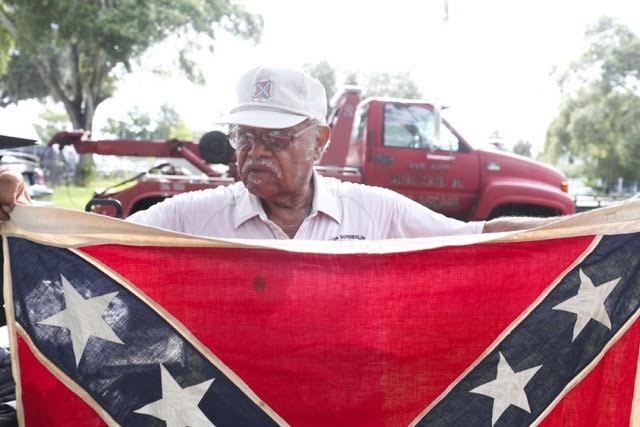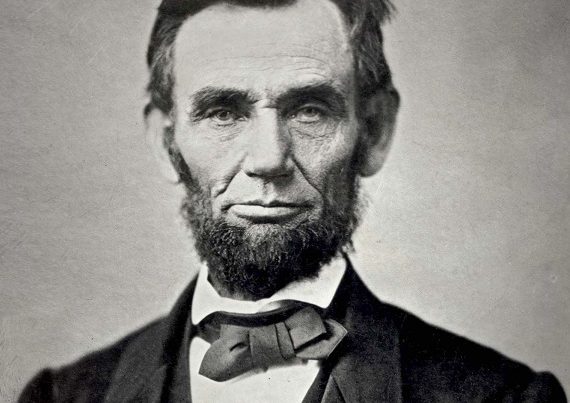Yesterday’s Washington Post had an article about eighty-eight year old Nelson Winbush who is a Florida black man and proponent of Confederate monuments. His grandfather, Louis Napoleon Nelson, was a Tennessee slave who followed his master and sons into the Confederate military. Initially Louis was a cook but later became a rifleman and a chaplain under the command of cavalry leader Nathan Bedford Forrest.
According to The Post, Winbush “said his grandfather believed he was defending his home state of Tennessee from ‘Yankee’ invaders, not fighting to preserve slavery. His final wish, Winbush said, was that he be buried in his Confederate uniform…This pride has been embraced by Winbush, who joined the Sons of Confederate Veterans nearly three decades ago.”
The Post reporter (Kimberly Kindy) quotes remarks by historian David Blight that suggest few Southern blacks were loyal to the Confederacy, or their masters. (In response to my email yesterday, however, Dr. Blight replied that he never spoke to Kindy. Although he added that he does not know where she obtained quotes attributed to him, he speculated they may have come from some of his talks on YouTube. Kindy never replied to my email.) Nonetheless, Kindy’s article states:
Blight said the version of events that recalls black soldiers as co-signers to the Confederate Army’s mission emerged after the war, growing out of the Lost Cause tradition.
In the 1980s and 1990s, Blight said, the Sons of Confederate Veterans began to promote this as historical fact, saying that many Southern blacks had supported the war. “It’s a popular mythology — the trusted, contented slave, Blight said. “And if you want the Confederacy to be somehow palatable in the post-civil rights era, it helps if people believe there were a whole lot of black people who supported it.”
While the number of blacks bearing arms for the Confederacy was small, significant numbers traveled with the Rebel armies as servants and workers. According to eyewitness British military observer Lieutenant-Colonel Arthur J. L. Fremantle who marched with Lee’s army to Gettysburg, each regiment was accompanied by twenty to thirty slaves. Although few may have used a weapon in combat, Fremantle was convinced of their loyalty to the South. They could, he averred, be converted into effective soldiers due to “the affection that undoubtedly exists as a general rule between the slaves and their masters…”
Although Dr. Blight is fond of quoting a racist pre-war speech defending slavery by Alexander Stevens who became the Confederacy’s Vice President, Stephen’s remarks to the Georgia legislature less than a year after the war ended contradict the skepticism about slave loyalty attributed to Blight by The Post as well the suggestion that Stephens disdained blacks.
Wise and humane provisions should be made for [ex-slaves]…so that they may stand equal before the law, in the possession and enjoyment of all rights of person, liberty and property. Many considerations claim this at your hands. Among these may be stated their fidelity in times past. They cultivated your fields, ministered to your personal wants and comforts, nursed and reared your children; and even in the hour of danger and peril they were, in the main, true to you and yours. To them we owe a debt of gratitude, as well as acts of kindness.
I speak of them as we know them to be, having no longer the protection of a master or legal guardian; they now need all the protection which the shield of law can give. But above all, this protection should be secured because it is right and just…
The Post article also (perhaps falsely) implies that professor Blight has concluded the Confederate constitution identified slavery as the chief cause of secession and the Civil War. In truth, however, the CSA constitution differed from the USA constitution in four ideological ways:
1. Corporate welfare was outlawed. The Confederate government was forbidden to pay subsidies (“bounties”) to private industry.
2. Protective tariffs were prohibited. The Confederate government could only collect tariffs for revenue. Any tariff designed to protect an industry from foreign competition was illegal. Such tariffs were regarded as another form of forbidden corporate welfare.
3. With minor exceptions, the Confederate government was prohibited from spending money on public works. Such spending was regarded as an obligation of the states individually—a form of state’s rights.
4. Slavery was explicitly legalized.
The contrasting interpretations between Nelson Winbush and those that reporter Kimberly Kindy attributes to David Blight may underscore the wisdom of Blight’s fellow Yale professor, Carlos Eire, who escaped Castro’s Cuba as a boy.
“Show me history untouched by memories and you show me lies. Show me lies not based on memories and you show me the worst lies of all.”






